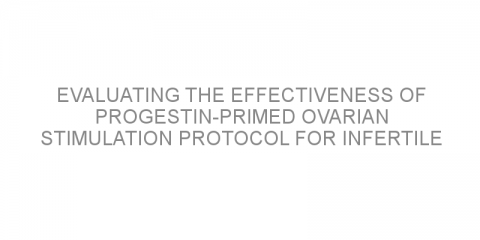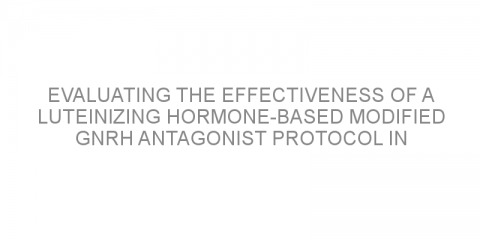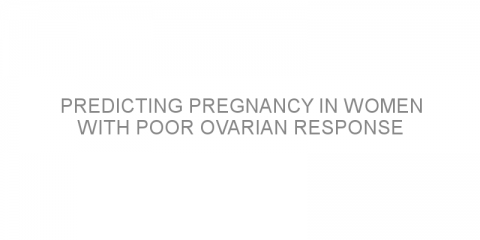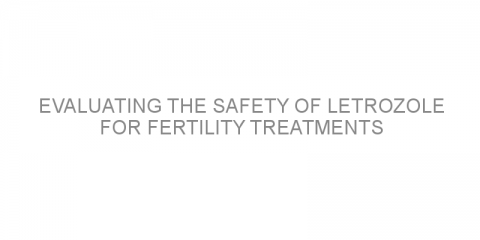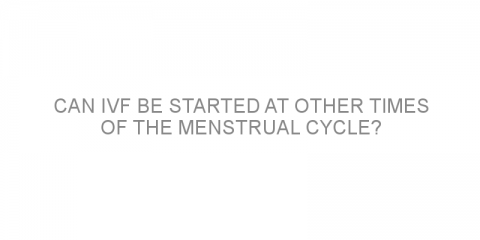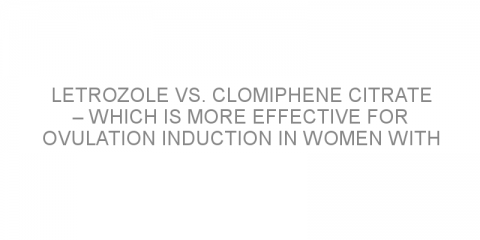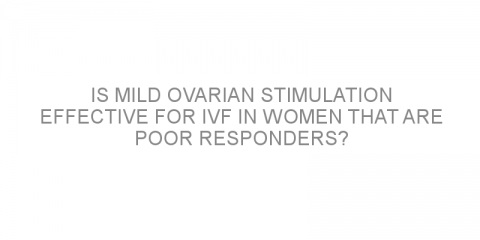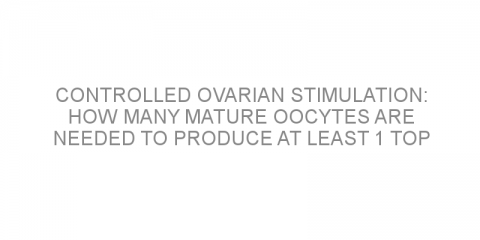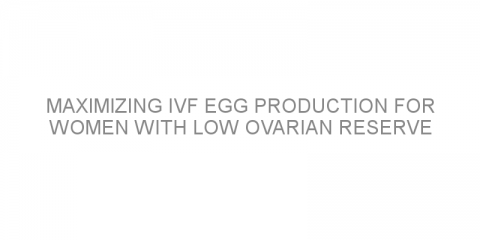In a nutshell This study evaluated the effectiveness of progestin-primed ovarian stimulation (PPOS) protocol for infertile patients with different ovarian reserve functions. The data showed that PPOS is an effective ovarian stimulation protocol and is beneficial for these patients. Some background Many couples with infertility opt to use assisted...
Read MoreOngoing treatment(s)-Ovarian stimulating drugs Posts on Medivizor
Evaluating the effectiveness of a luteinizing hormone-based modified GnRH antagonist protocol in patients with normal ovarian response undergoing in vitro fertilization treatment.
In a nutshell This study evaluated the clinical and cost-effectiveness of a luteinizing hormone (LH)-based modified gonadotrophin-releasing hormone (GnRH) antagonist protocol in patients with normal ovarian response undergoing in vitro fertilization (IVF) treatment. The data showed that the LH-based modified GnRH antagonist protocol was more...
Read MoreDoes ovarian stimulation drugs increase the risk of breast cancer?
In a nutshell This review looked at whether women who used fertility medications more often developed breast cancer later on. It found that women treated with ovarian stimulation had similar rates of breast cancer to other women. Some background Treatment for infertility has become common, both as people have children later, and as the condition is...
Read MorePredicting pregnancy in women with poor ovarian response
In a nutshell This study looked at which factors can predict pregnancy following in vitro fertilization (IVF) for patients with a poor ovarian response (POR). It found that pregnancy was affected by age, body weight, ovarian reserve, and type of fertility medication. Some background For couples with infertility, IVF can greatly increase the chances of...
Read MoreDo fertility medications improve fertility outcomes for women with PCOS?
In a nutshell This study compared letrozole (Femara), clomiphene (Clomid), or no ovarian stimulation for women with polycystic ovarian syndrome (PCOS). It found that letrozole led to the uterus being more receptive to an embryo, and to higher pregnancy rates. Some background Women with PCOS do not ovulate frequently or at all. Patients who want...
Read MoreEvaluating the safety of letrozole for fertility treatments
In a nutshell This review looked at the safety of using letrozole (Femara) to promote ovulation. It found that letrozole does not increase birth defects or miscarriage. It also found that letrozole led to higher birth rates than clomiphene citrate (Clomid). Some background Infertility is a growing issue. Not ovulating regularly, or releasing an egg,...
Read MoreCan IVF be started at other times of the menstrual cycle?
In a nutshell This review compared starting ovarian stimulation (OS) for egg collection at the conventional time early in the menstrual cycle, to starting it in the luteal phase, late in the cycle. It found that both timelines led to successful egg collection. Using two collections in one cycle may improve outcomes for patients with a poor response to...
Read MoreDoes the dose of gonadotropin hormone influence IVF outcomes?
In a nutshell This study looked at the dose of gonadotropin (GN) used for ovarian stimulation during in vitro fertilization (IVF). It found that cycles with higher GN doses may have lower birth rates. Some background The first stage of the infertility treatment IVF is to stimulate the ovaries to produce multiple follicles. This is most often done...
Read MoreLetrozole vs. clomiphene citrate – which is more effective for ovulation induction in women with unexplained infertility?
In a nutshell This study compared clomiphene citrate (Clomid) and letrozole (Femara) for ovulation induction (OI) drugs in women with unexplained infertility. They found that letrozole was associated with lower miscarriage rates (MCRs). Some background Unexplained infertility is a leading cause of infertility. Assisted...
Read MoreIs mild ovarian stimulation effective for IVF in women that are poor responders?
In a nutshell This study investigated mild ovarian stimulation (OS) for in vitro fertilization (IVF) in women with poor response. They found that there was no difference in outcomes between conventional and mild OS in these women. Some background Controlled ovarian stimulation (COS) is an assisted reproductive technique (ART). It is...
Read MoreControlled ovarian stimulation: how many mature oocytes are needed to produce at least 1 top quality embryo?
In a nutshell This study investigated the number of mature oocytes (eggs) needed to produce top-quality embryos (TQE). They found that at least 3 mature oocytes produced are associated with at least 1 TQE. Some background In vitro fertilization (IVF) first requires oocytes (eggs). They are retrieved by controlled ovarian stimulation (COS)....
Read MoreMaximizing IVF egg production for women with low ovarian reserve
In a nutshell This study compared in vitro maturation (IVM) to double ovarian stimulation (DuoStim) for women expected to have a poor outcome from in vitro fertilization (IVF). It found that both methods increased the number of eggs compared to standard IVF, and that DuoStim may be more effective. Some background The first step of the infertility...
Read More
